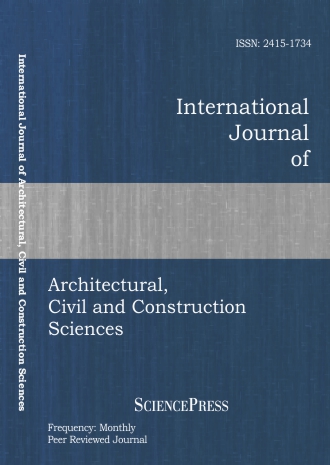
Scholarly
Volume:9, Issue: 8, 2015 Page No: 1089 - 1093
International Journal of Architectural, Civil and Construction Sciences
ISSN: 2415-1734
1741 Downloads
Determining Earthquake Performances of Existing Reinforced Concrete Buildings by Using ANN
In this study, an Artificial Neural Network (ANN) analytical method has been developed for analyzing earthquake performances of the Reinforced Concrete (RC) buildings. 66 RC buildings with four to ten storeys were subjected to performance analysis according to the parameters which are the existing material, loading and geometrical characteristics of the buildings. The selected parameters have been thought to be effective on the performance of RC buildings. In the performance analyses stage of the study, level of performance possible to be shown by these buildings in case of an earthquake was determined on the basis of the 4-grade performance levels specified in Turkish Earthquake Code-2007 (TEC-2007). After obtaining the 4-grade performance level, selected 23 parameters of each building have been matched with the performance level. In this stage, ANN-based fast evaluation algorithm mentioned above made an economic and rapid evaluation of four to ten storey RC buildings. According to the study, the prediction accuracy of ANN has been found about 74%.
Authors:
References:
[1] M. H. Arslan and H. H. Korkmaz, “What is to be learned from damage